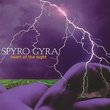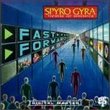| All Artists: Michael Haydn, Harold Farberman, Bournemouth Sinfonietta Title: Michael Haydn: 8 Symphonies: Nos. 19, 21, 23, 26, 29, 37, 39, 41 Members Wishing: 0 Total Copies: 0 Label: Vox (Classical) Release Date: 11/4/1992 Album Type: Box set Genre: Classical Styles: Historical Periods, Classical (c.1770-1830), Symphonies Number of Discs: 2 SwapaCD Credits: 2 UPC: 047163502026 |
Search - Michael Haydn, Harold Farberman, Bournemouth Sinfonietta :: Michael Haydn: 8 Symphonies: Nos. 19, 21, 23, 26, 29, 37, 39, 41
 | Michael Haydn, Harold Farberman, Bournemouth Sinfonietta Michael Haydn: 8 Symphonies: Nos. 19, 21, 23, 26, 29, 37, 39, 41 Genre: Classical
|
CD DetailsSimilarly Requested CDs
|
CD ReviewsA Special Reissue Containing Many of the Classic Farberman R Doug - Haydn Fan | California | 08/28/2007 (5 out of 5 stars) "Arkiv CD is a reissue - Arkiv, a retailer having purchased the rights to these selections. Unlike some Amazon listings this is all quite above board. The music and performances were considered classics when they were first issued on records. Recorded digitally, they came out near the end of the LP era. The CD set prices seem a tremendous deal. This 2 CD set does not appear a transfer of the original digital material, but rather a more mundane copy of the LPs. I could be mistaken, but Arkiv offers no notes, simply a cover image and a few words inside. The reverse of the CD shows the titles, times, and is the only useful information offered. Comparing these to the originals show Arkiv has done a good job, with none of the problems of excessively boomy bass ruining their transfer of the William Boyce symphonies. If you are leery of trying this CD set there is another single Farberman CD on a regular label of material never before issued. It is very good stuff, coming from the same era, and sports useful notes on the sad demise of the orchestra, the Bournemouth Sinfonietta. For you more adventurous sorts there's pleanty here - two CDs - and for the price I prefer this to any other go throughs of these works. Farberman, as others have pointed out, manages a just-right tempo wherever he goes, and brings an athletic energy missing in some of the other CDs of these works. Too, there was an air of discovery about these performances, and it still comes across. Also, I like the Bourenmouth - they were quite good indeed." Fun music Samuel Stephens | TN, USA | 08/28/2007 (5 out of 5 stars) "I like to say often that Michael Haydn may not have been as technically perfect as his brother, but he was just as good a composer when it came to 'tunes'.
This is a very nice intro to the symphonies by Michael Haydn, my personal favorite being No.21. If you are in the least interested in hearing music by the famous sibling of Franz Joseph, then this is the place to start. As a sidenote: when Schubert stood over the grave of 'Haydn' and called him a "master", he was speaking of Michael, not Joseph." |

 Track Listings (5) - Disc #1
Track Listings (5) - Disc #1








